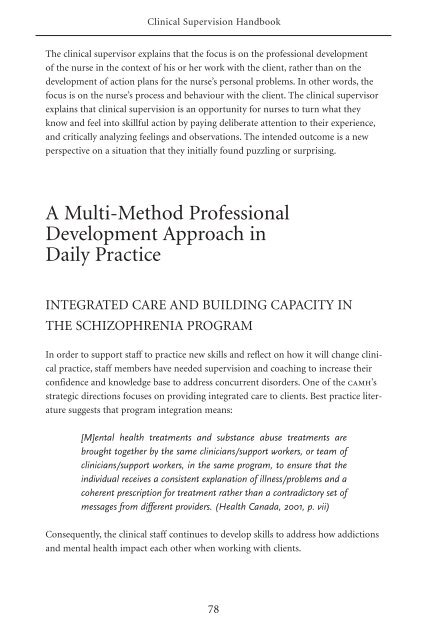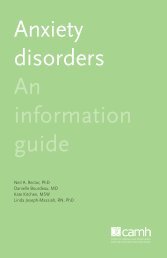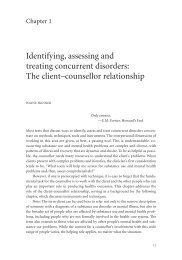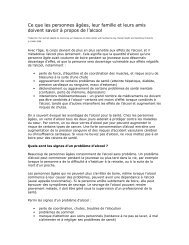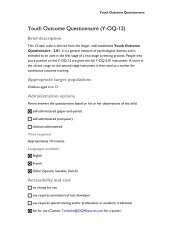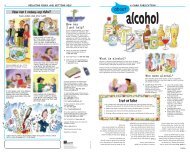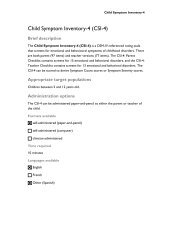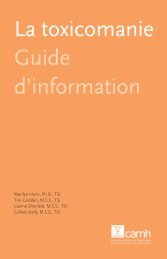Clinical Supervision Handbook - CAMH Knowledge Exchange ...
Clinical Supervision Handbook - CAMH Knowledge Exchange ...
Clinical Supervision Handbook - CAMH Knowledge Exchange ...
You also want an ePaper? Increase the reach of your titles
YUMPU automatically turns print PDFs into web optimized ePapers that Google loves.
<strong>Clinical</strong> <strong>Supervision</strong> <strong>Handbook</strong><br />
The clinical supervisor explains that the focus is on the professional development<br />
of the nurse in the context of his or her work with the client, rather than on the<br />
development of action plans for the nurse’s personal problems. In other words, the<br />
focus is on the nurse’s process and behaviour with the client. The clinical supervisor<br />
explains that clinical supervision is an opportunity for nurses to turn what they<br />
know and feel into skillful action by paying deliberate attention to their experience,<br />
and critically analyzing feelings and observations. The intended outcome is a new<br />
perspective on a situation that they initially found puzzling or surprising.<br />
A Multi-Method Professional<br />
Development Approach in<br />
Daily Practice<br />
INTEGRATED CARE AND BUILDING CAPACITY IN<br />
THE SCHIZOPHRENIA PROGRAM<br />
In order to support staff to practice new skills and reflect on how it will change clinical<br />
practice, staff members have needed supervision and coaching to increase their<br />
confidence and knowledge base to address concurrent disorders. One of the camh’s<br />
strategic directions focuses on providing integrated care to clients. Best practice literature<br />
suggests that program integration means:<br />
[M]ental health treatments and substance abuse treatments are<br />
brought together by the same clinicians/support workers, or team of<br />
clinicians/support workers, in the same program, to ensure that the<br />
individual receives a consistent explanation of illness/problems and a<br />
coherent prescription for treatment rather than a contradictory set of<br />
messages from different providers. (Health Canada, 2001, p. vii)<br />
Consequently, the clinical staff continues to develop skills to address how addictions<br />
and mental health impact each other when working with clients.<br />
78


